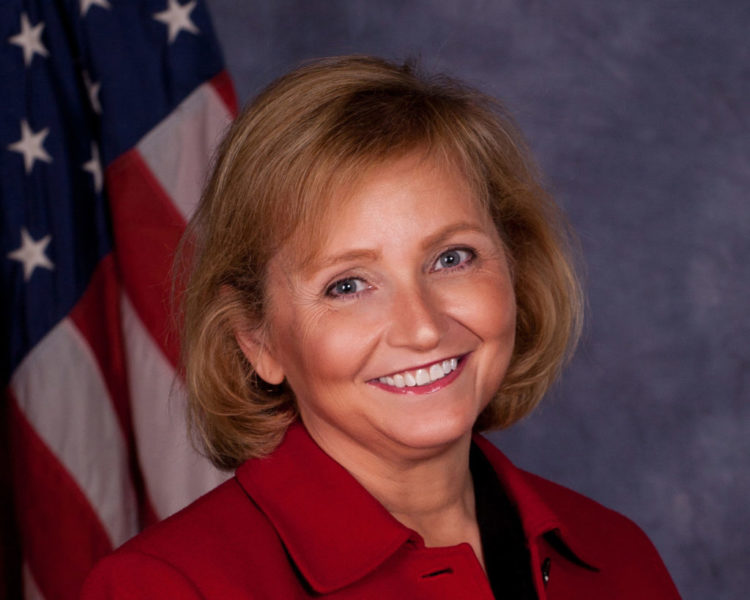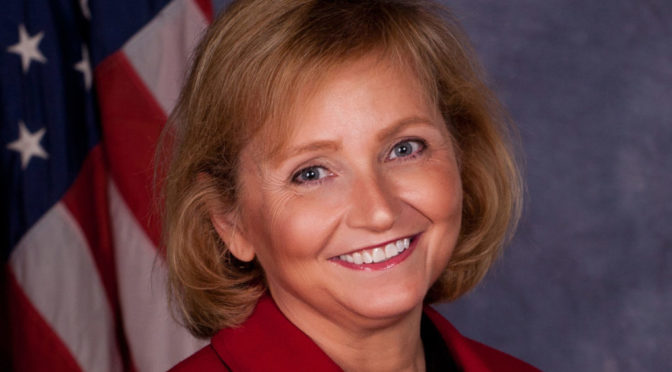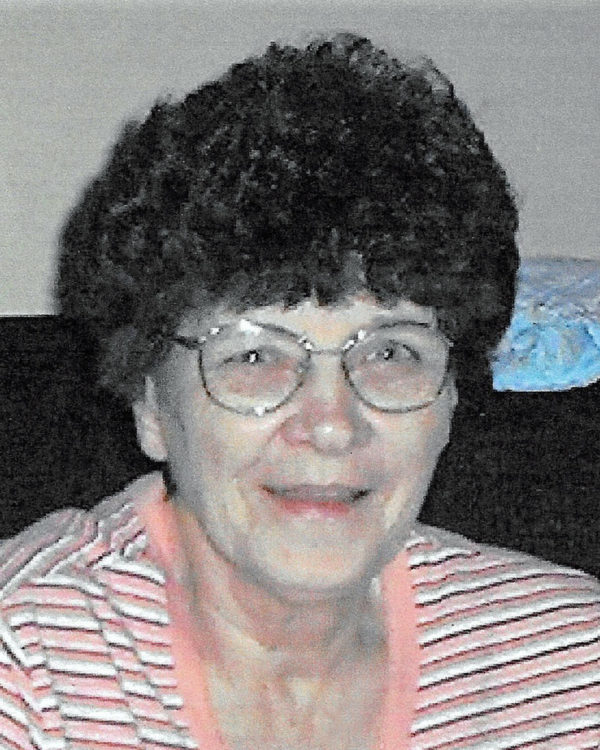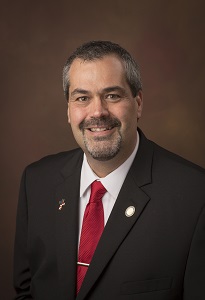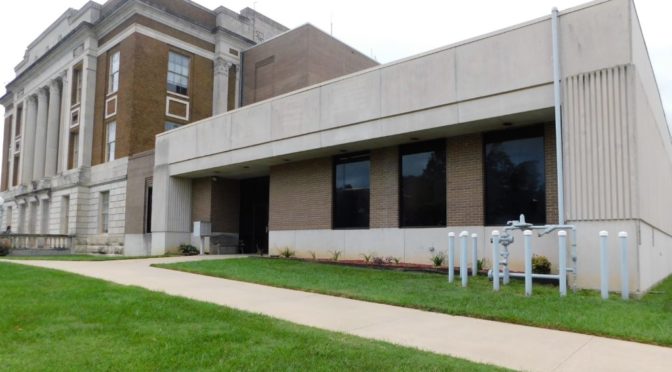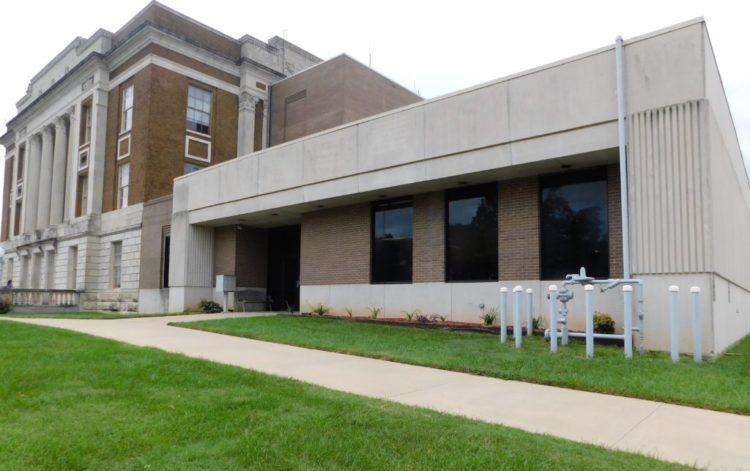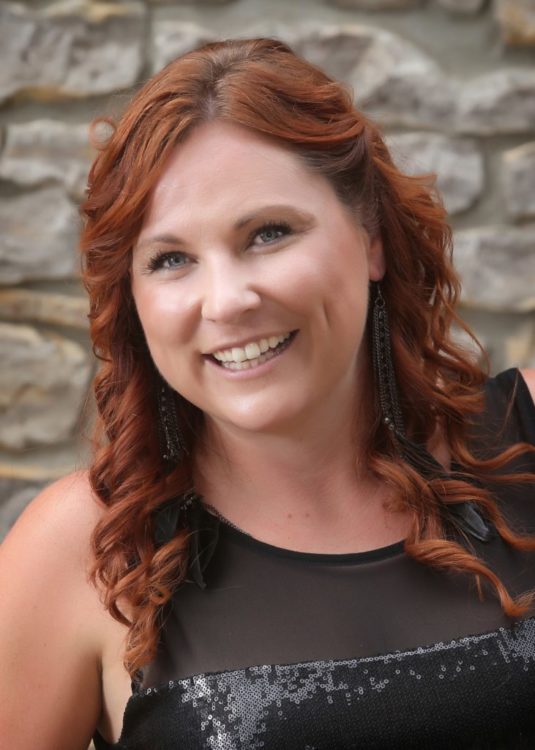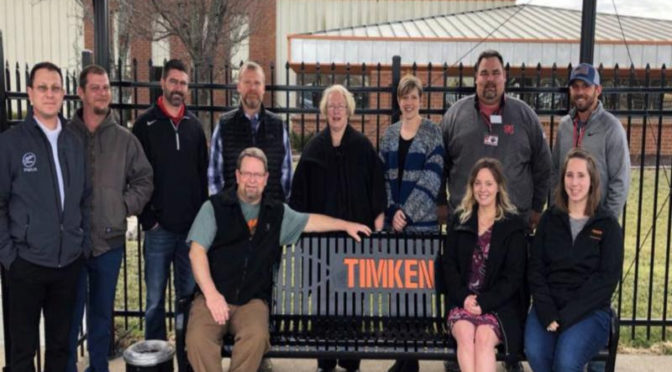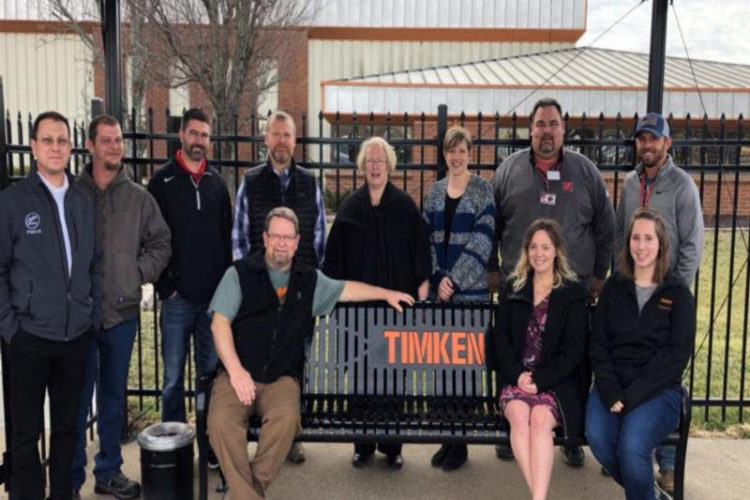FLOOR ACTION
REGISTERING FLEET VEHICLES (
SB 97): Senate Bill 97 authorizes the registration of certain rental vehicles in fleets and the issuance of permanent license plates to reflect that registration. Qualification for the registration would require a person to submit the registrations electronically for more than 250 motor vehicles subject to an excise tax on the gross receipts received from rental or lease for a period not exceeding 28 days (rental vehicle excise tax). This bill passed the Senate 40-0.
COMPANY SIGNS IN VEHICLES (
SB 63): Senate Bill 63 authorizes the governing body of a city to adopt an ordinance to allow a driver for a transportation network company, when the driver is logged on to the transportation network company’s digital network, to equip the vehicle with a device capable of displaying a light visible from directly in front of the center of the vehicle. The lighting device can display steady light and can be any color except red. This bill passed the Senate 40-0.
REMEDIATION REIMBURSEMENT PROGRAM (
HB 2001): House Bill 2001 extends the sunset on the Kansas Remediation Linked Deposit Loan Program, the Kansas Remediation Reimbursement Program, and the Kansas Agricultural Remediation Fund from July 1, 2020, to July 1, 2030. This bill passed the Senate 40-0.
UNCLAIMED LIFE INSURANCE BENEFITS ACT (
SB 67): Senate Bill 67 establishes the Unclaimed Life Insurance Benefits Act (Act). The bill would require an insurer to compare its insureds ‘in-force policies, contracts, and retained asset accounts against a DMF, on at least a semi-annual basis, by using the full DMF once and then using the DMF update files for future comparisons to identify potential matches of its insureds. The bill would require insurers, for group life insurance, to confirm the possible death of an insured when the insurers maintain at least the Social Security number or name and date of birth, beneficiary designation information, coverage eligibility, benefit amount, and premium payment status of those covered under a policy or certificate. This bill passed the Senate 39-0(I passed on this vote, because of it having a direct impact on my business).
SERVICE-CONNECTED DEFINITION IN POLICE AND FIREMEN’S RETIREMENT SYSTEM (
SB 15): Senate Bill 15 revises the definition for “service-connected” as that term is used to determine death and disability benefits in the Kansas Police and Firemen’s Retirement System. Under current law, service-connected causes for death and disability benefits include heart disease, lung or respiratory disease, and cancer. The bill would add bloodborne pathogens. This bill passed the Senate 40-0.
UPDATING THE STATE BANKING CODE (
SB 82): Senate Bill 82 amends provisions of the State Banking Code relating to certificate of existence, voting rights for conversion to a state charter, and the method of delivery for certain notices.
- Certificate of Existence – specify no party may infer a financial institution relying on a certificate of existence has knowledge of the terms of an entity’s documentation solely because the financial institution holds a copy of all or part of the entity’s documentation.
- Conversion to a State Charter Voting Rights – authorize any national bank, federal savings association, or federal savings bank to become a state bank upon the affirmative vote of not less than two-thirds of the institution’s voting interests of members The bill would require the submission of a transcript of minutes from the meeting if two-thirds of the voting interests of members approve of the proposed conversion to a state bank.
- Method of Delivery for Certain Notices – authorize notice by certified mail or electronically pursuant to the Uniform Electronic Transactions Act to all stakeholders at least five days in advance of a meeting to vote on the issuance of preferred stock. The bill also authorizes a safe deposit lessor to provide notice by certified mail or electronically pursuant to the Act to the lessee when a safe deposit box lease is being terminated.
This bill passed the Senate 40-0.
ENTREPRENEURSHIP ACT (
SB 90): Senate Bill 90 would allow financial institutions to claim the Center for Entrepreneurship tax credit beginning in tax year 2019, which would be applied to the privilege tax owed. The maximum amount of tax credits that any taxpayer could claim would be increased from $50,000 to $100,000. The total amount of tax credits that could be claimed for all taxpayers would remain capped at $2.0 million per fiscal year. This bill passed the Senate 40-0.
KANSAS REAL ESTATE COMMISSION LICENSING (
SB 60): Senate Bill 60 modifies statutes related to licensing of real-estate brokers and the Kansas Real Estate Commission. The bill reduces real estate broker’s licenses time from five years to three years preceding the date of application for the license for which an applicant for a broker’s license may satisfy the requirement of two years’ experience as a resident salesperson or a licensee in another state. It also increases the pre-license education course from 24 hours to 30 hours, and no more than 45 hours, and renames the course the “Kansas Real Estate Fundamentals Course.” It also creates a new course titled “Kansas Real Estate Management Course,” which would be 30 to 45 hours in length and would be required for original broker’s license applicants beginning January 1,2020. This bill passed the Senate 40-0.
REGULATING ASSIGNMENT OF RIGHT OR BENEFITS TO A RESIDENTIAL CONTRACTOR (
SB 78): Senate Bill 78 creates law within the Kansas Consumer Protection Act regarding a post-loss assignment of rights or benefits to a residential contractor under a property and casualty insurance policy insuring residential real estate. The bill would state an assignment may authorize a residential contractor to be named as a co-payee for the payment of benefits under a property and casualty insurance policy covering residential real estate. Such assignment would be required to include a statement that the residential contractor has made no assurances that the claimed loss will be fully covered by an insurance contract as well as a specified notice in capitalized, 14-point type. The residential contractor would be required to provide the assignment to the insurer of the residential real estate within three days of the signing of the assignment, and the assignment would have to provide that, in addition to any other right to revoke, the named insured has the right to cancel the assignment within five business days after execution. This bill passed the Senate 38-1(I passed on this vote, because of it having a direct impact on my business).
AT-RISK PROGRAMS (
SB 16): Senate Bill 16 requires, on and after July 1, 2019, the best practices identified and approved by KSBE for at-risk programs and instruction of students receiving at-risk program services to include, but not be limited to, programs and services provided by state-based national nonprofit organizations that focus on students who are identified as at-risk or who face other identifiable barriers to success; provide peer-reviewed, evidence-based instruction and support services to such students inside and outside the school setting; and show proven and consistent effectiveness through outcomes data, including, but not limited to, school attendance, academic progress, graduation rates, pursuit of postsecondary education, or career advancement. The bill would also specify Jobs for America’s Graduates and Boys and Girls Club as programs eligible to receive state appropriations for providing individualized support to students enrolled in unified school districts and assisting with student achievement goals. This bill passed the Senate 39-1(I voted against this bill, because I think that this is something that should be decided on the local level).
MINIMUM SCHOOL SAFETY DRILLS EACH YEAR (
SB 128): Senate Bill 128 requires the State Fire Marshal to adopt rules and regulations requiring administrators of public and private schools and educational institutions, except community colleges, colleges, and universities, to conduct at least four fire drills, two tornado drills (one in September and one in March), and three crisis drills each school year. The bill would require the three crisis drills to be conducted at some time during school hours, aside from the regular dismissal at the close of the day’s session. This bill passed the Senate 40-0.
MOTOR VEHICLE ACCIDENT PREVENTION COURSE (
SB 94): Senate Bill 94 would require a motor vehicle accident avoidance course associated with required reduction in motor vehicle insurance premium charges to be at least four hours in duration. The bill would require the course utilize a nationally recognized driver training curriculum or a curriculum approved by a state or federal agency, rather than a course approved by the National Safety Council or a governmental agency such as the State Board of Education.This bill passed the Senate 40-0.
POLICE AUDIBLE AND VISUAL SIGNALS (
SB 62): Senate Bill 62 authorizes the violation of certain rules of the road in the Uniform Act Regulating Traffic on Highways by the driver of a police vehicle who has reason to believe vehicle operation while using lights and audible signals could impede a law enforcement action under circumstances specified by the bill. This bill passed the Senate 34-4(I voted in favor of this bill).
WIRELESS TELECOMMUNICATION SERVICES (
SB 68) Senate Bill 68 make changes to law relating to valid contract franchise ordinances and their application to wireless service providers and wireless infrastructure providers. The bill would allow a city to govern a wireless services provider’s or wireless infrastructure provider’s use of the public right-of-way using any combination of a master license agreement, permitting requirement, or municipal ordinance or code. The bill would require such governance to be consistent with federal and state law. The bill also would allow a city to assess a wireless services provider or a wireless infrastructure provider a fixed right-of-way access fee for each small cell facility that a provider deploys that requires the use of the city’s right-of-way. The fee could not be based on such a provider’s gross receipts derived from services provided within a city’s corporate limits. This bill passed the Senate 40-0.
KANSAS STATE GRAPE (
SB 53): Senate Bill 53 designates the official Kansas red Winegrape as Chambourcy, and the official Kansas white Winegrape as Vignola’s. This bill passed the Senate 40-0.
POSTSECONDARY TECHNICAL EDUCATION AUTHORITY (
SB 71): Senate Bill 71 reauthorizes the Postsecondary Technical Education Authority (TEA) by repealing the statute specifying sunset date of June 30, 2019. The bill would also require the TEA to make an annual report to the Legislature on the performance of its functions and duties. This bill passed the Senate 40-0.
DATE FOR TAKING OFFCE (
SB 105): Senate Bill 105 authorizes a city to determine the start date of a regular term of office for a city officer by resolution of the city. In law regarding city elections, the bill would require the start date be on or after December 1 following certification of the election and no later than the second Monday in January following certification of the election. If the city does not establish an alternative date, the bill would specify such term would begin on the second Monday in January. This bill passed the Senate 40-0.
EMPLOYMENT FOR BLIND OR DISABLED INDIVIDUALS (
HB 2044) House Bill 2044 authorizes a new income tax credit for tax years 2019 through 2023 equivalent to 15.0 percent of expenditures on goods and services purchased from qualified vendors or non-profit certified businesses, as those terms would be defined by the bill, that provide a certain level of health insurance benefits and have at least30.0 percent of their employees be resident Kansans with disabilities. The amount of the credit would be capped at $500,000 per each qualified vendor each tax year, and the total amount of cumulative credits allowed for the life of the program would be capped at $5.0 million. The tax credits would be nonrefundable, but unused credits could be carried forward for up to four years and applied against the liability of future tax years. This bill passed the Senate 37-1(I voted in favor of this bill).
AO-K TO WORK PROGRAM (
SB 199): Senate Bill 199 creates the AO-K to work program that allows certain adults to earn high school equivalency credentials through the participation of career pathway oriented postsecondary classes. This bill passed the Senate 40-0.
SERVICES FOR CHILDREN WITH PROBLEM SEXUAL BEHAVIOR (
SB 77): Senate Bill 77 requires the Department for Children and Families (DCF) to offer services to children with problem sexual behavior and their families. This bill passed the Senate 38-0.
REQUIRING THE NOTIFICATION OF MISSING FOSTER CARE CHILDREN (
SB 162): Senate Bill 162 requires the notification to the governor and legislature whenever a child goes missing in foster care. The Department for Children and Families (DCF) would be required to notify the governor and legislature as well as the newspaper of the county wherever the child went missing. The bill also requires DCF to issue a fine of $500 to the contractor for each day the contractor fails to report the missing child. This bill passed the Senate 40-0.
STATE CABIN RENTAL FEES (
SB 49): Senate Bill 49 authorizes the Department of Wildlife, Parks, and Tourism to establish fees for the public use of cabins owned or operated by the department and for camping permits at state parks. SB 49 eliminates current law that requires the department to obtain approval from the Kansas Wildlife, Parks, and Tourism Commission to establish fees for the use of cabins by the public. The bill also eliminates current caps on fees for cabin rentals. This bill passed the Senate 29-11(I voted against this bill. This bill deletes the fee caps, and oversight for the Secretary of KDWPT. I do not believe that we should give any unelected bureaucrat the ability to raise fees without any oversight. This bill also gives the state an unfair advantage over private business) .
KANSAS CEREAL MALT BEVERAGE ACT (
HB 2035): House Bill 2035 provides uniformity in the issuance of citations for violations of the Kansas Cereal Malt Beverage Act by ABC. This bill passed the Senate 40-0.
ALLOWING CERTAIN PODIATRISTS TO PERFORM SURGERY (
SB 61): Senate Bill 61 adds podiatrists who completed a two-year post-doctoral surgical residency program prior to July 1, 2007, in reconstructive rearfoot/ankle surgery to the podiatrists who may perform surgery on the ankle, as long as they are board-certified or in the process of being certified. This bill passed the Senate 40-0.
AMENDING THE CRIME OF COUNTERFEITING (
SB 134): Senate Bill 134 amends the crime of counterfeiting currency. This bill passed the Senate 40-0.
REMOVING A RESTRICTION IN UNEMPLOYMENT INSURANCE (
SB 27): Senate Bill 27 repeals the provision in Kansas Employment Security Law (commonly referred to as unemployment insurance or UI) that prohibits professional employer organizations from including a client company’s owners and officers in the same UI quarterly report as that company’s employees. This bill passed the Senate 40-0.
LICENSURE REQUIREMENTS FOR SOCIAL WORKERS (
SB 193): Senate Bill 193 provides for licensure by reciprocity for social workers at baccalaureate, master’s, and specialist clinical levels and amends the requirement for licensure by reciprocity for other professions regulated by the Behavioral Sciences Regulatory Board. SB 193 allows applicants who are deficient in the qualifications or in the quality of educational experience required for licensure, to obtain provisional licenses to allow the applicants time to fulfill remedial or other requirements prescribed by the Board. The bill also amends the licensure requirements for a specialist clinical social worker by reducing the number of hours of postgraduate supervised professional experience required. This bill passed the Senate 40-0.
ADDRESSING ISSUES WITH SIGNATURES ON ADVANCE BALLOTS (Sub SB 130): Substitute for Senate Bill 130 amends law concerning advance ballots and associated signature requirements. The bill requires county election officers to try to contact each voter who submitted an advance voting ballot without a signature or with a signature that does not match the signature on file and allow the voter to correct the deficiency before the final county canvass. This bill passed the Senate 40-0.
CHANGES TO MUNICIPAL OFFICE ELECTIONS (
SB 131): Senate Bill 131 amends law concerning the filing date for municipal offices and the date certain newly elected township officers take the oath of office. SB 131 changes the filing deadline for a candidate in a municipal election where a primary election is not authorized or required by law from September 1 prior to the general election in odd-numbered years to the day before the primary election date in both odd- and even-numbered years. The bill also changes the date a newly elected trustee, clerk, or treasurer of any township must take the oath of office, from within 20 days after being notified of such election to on or before the second Monday in January when the term of office begins. This bill passed the Senate 40-0.
SCHOOL BOARD ELECTIONS (
SB 7): Senate Bill 7 amends current law regarding the timing of appointing a replacement school board member, timing of elections of officers of a local board of education, the date local school district board officials take office, and the timing of an election to change the method of election or voting plan for school board members. SB 7 also requires the first meeting of the Board of Education to be on or after the second Monday in January or at a later meeting if so determined by the Board at the first meeting, rather than in July. This bill passed the Senate 37-2(I voted against this bill, because I think that this is something that should be decided on the local level).
EUDORA COMMUNITY LIBRARY DISTRICT ACT (
SB 59): Senate Bill 59 allows the city of Eudora to continue to be part of a library district previously established by the City of Eudora and Eudora Township. This bill passed the Senate 27-12(I voted against this bill. It gives an unelected board the ability to assess taxes. Plus the city of Eudora already collects a tax for this same issue. This is the definition of taxation without representation.)
